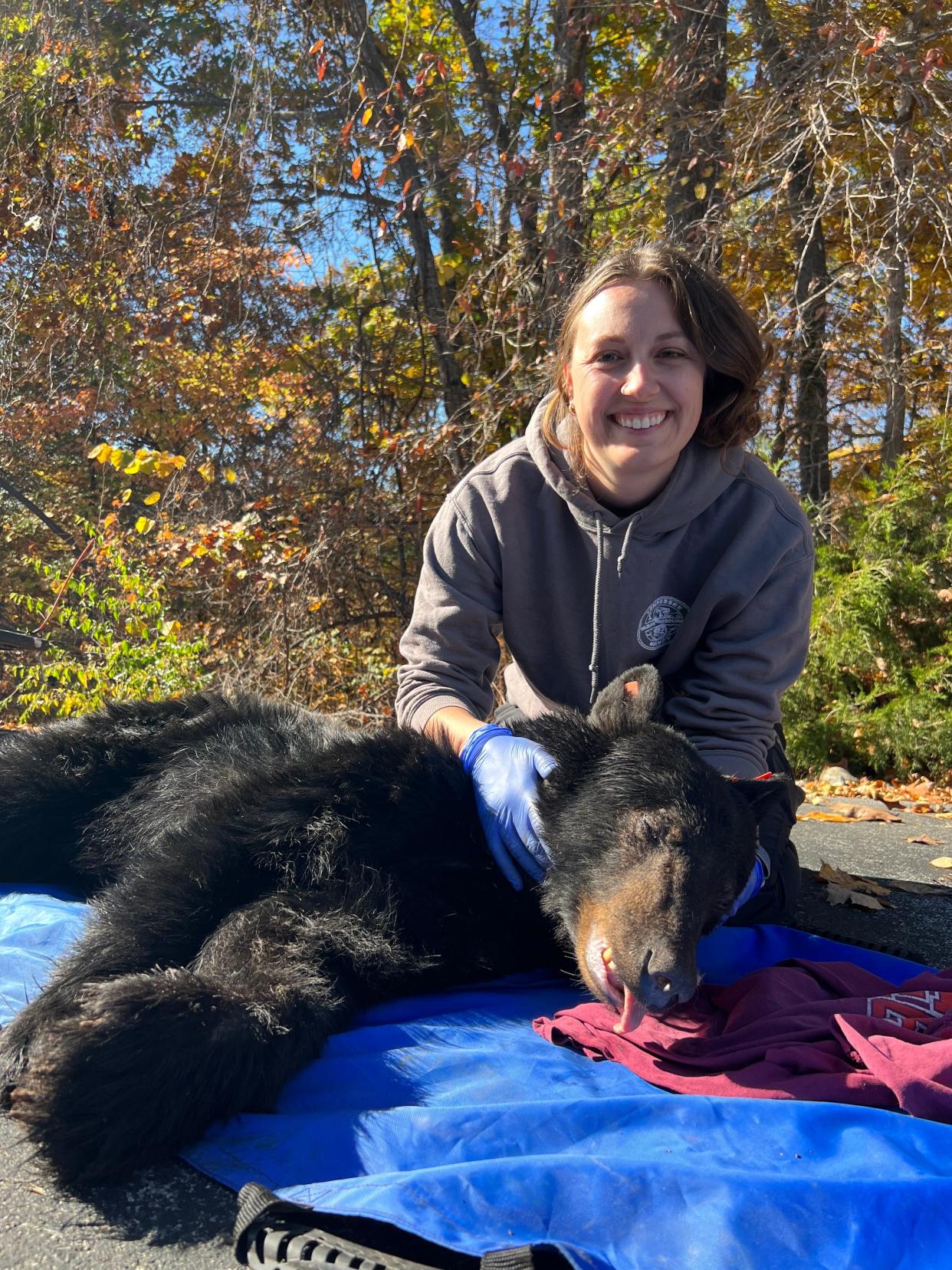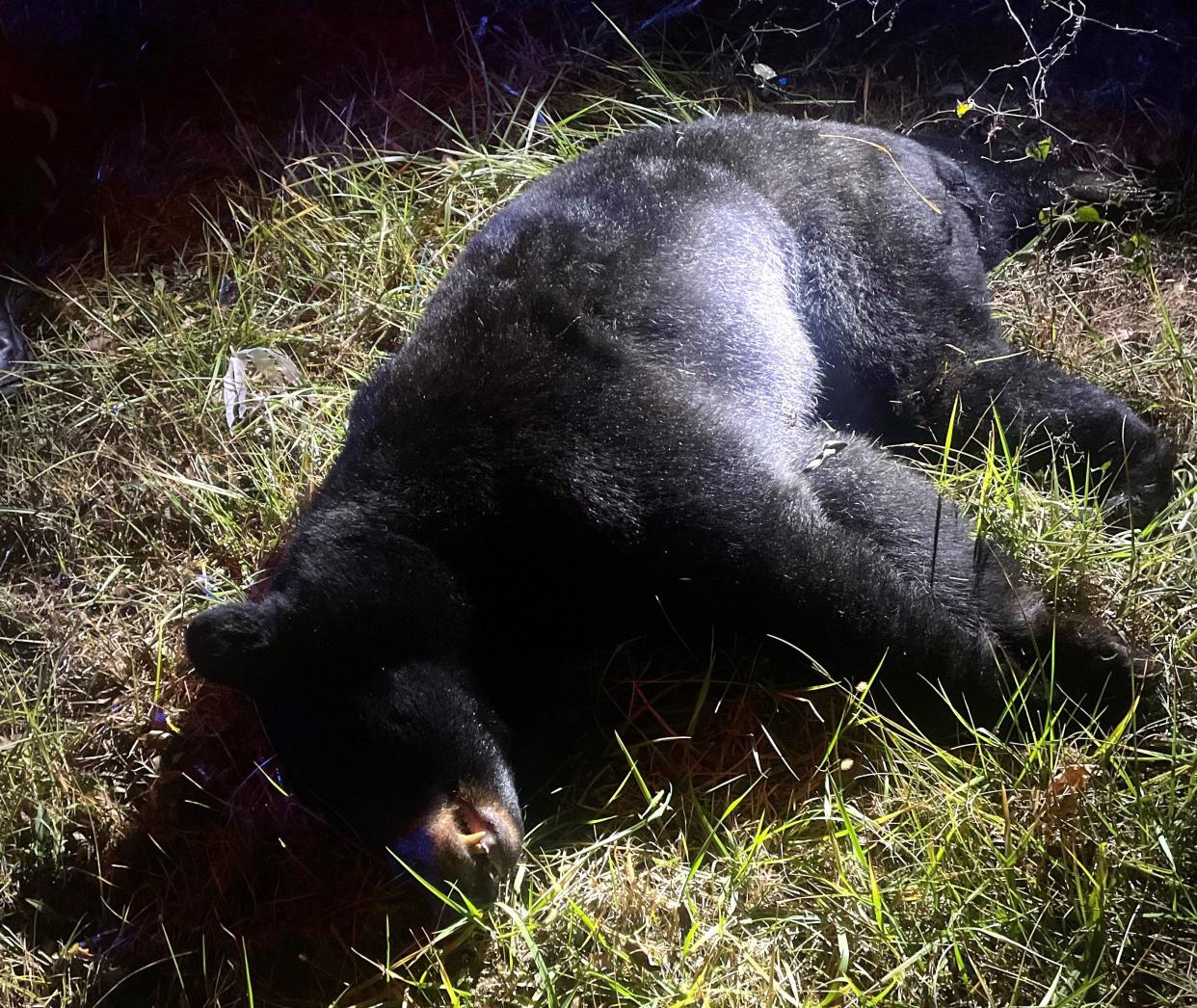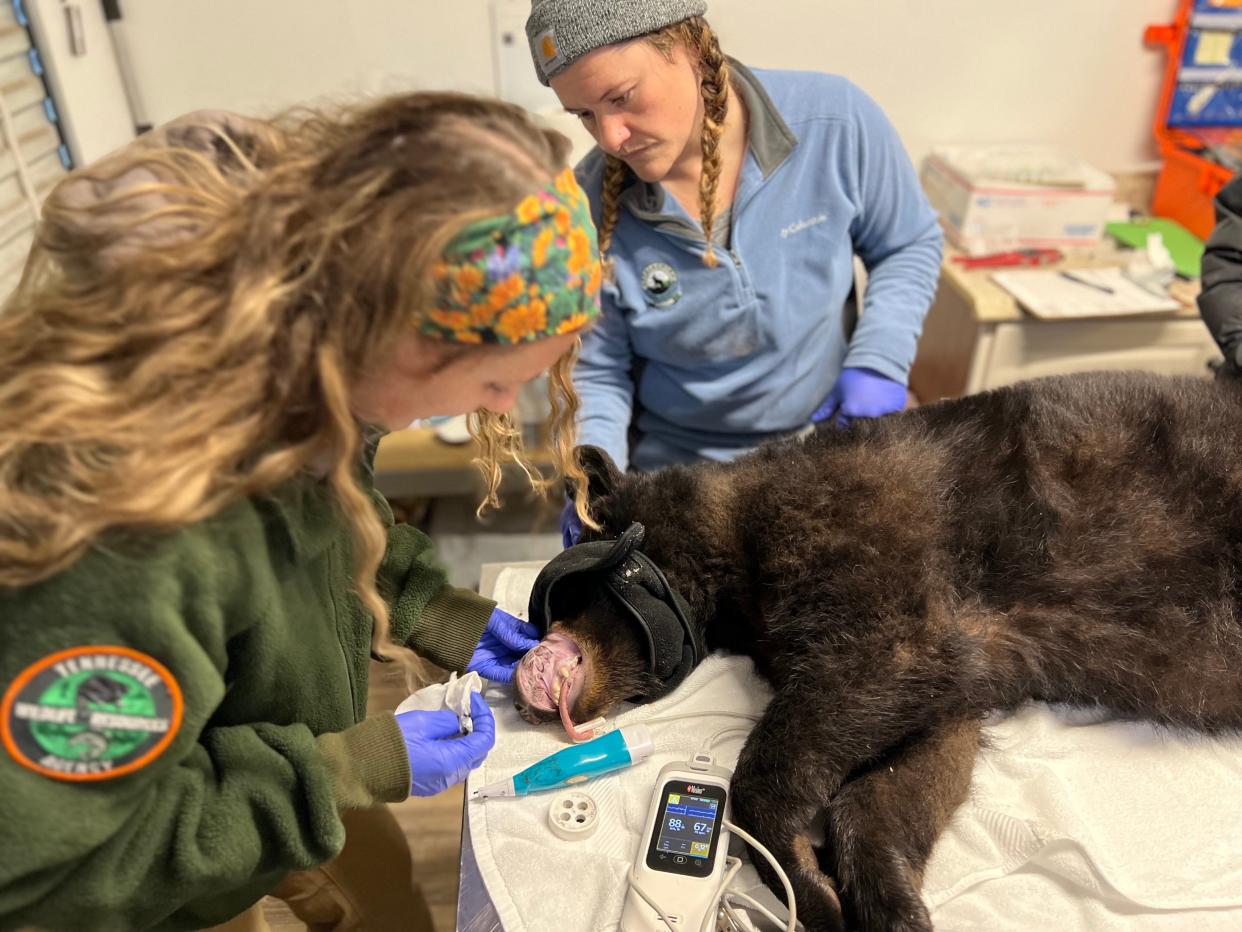Black bears are coming to Middle Tennessee. 'You have to do things different,' TWRA warns
Signs that read: "Don’t Feed the Bears" will be more common in Middle Tennessee.
Black bears are coming to the Nashville area.
When that population becomes more significant in the Midstate is still a wild card. But they are converging and it’s not too early for Middle Tennesseans to learn how to coexist with black bears as they expand their range across the state.
“It will vary, but the long-term trend will be increased sightings,” said Tennessee Wildlife Resources Agency Black Bear Coordinator Dan Gibbs. “People have to understand when you have bears in the area, you have to do things different. Don’t wait until they start showing up to start preparing how to live with them.”

Living with black bears 101
Garbage and bears often go together.
A black bear is comparable to a "300-pound racoon," according to TWRA spokesperson Barry Cross, who said the animals look for food sources that they find in garbage cans along with grub like bird seed and what is still on the outdoor grill.
“Don’t let them find food where you live,” Cross said. “If you don’t want to attract wildlife to your home, take away the attractants.”
Where black bears are coming from
Gibbs estimates there are 5,000-6,000 bears in Tennessee now, with the majority in East Tennessee. That includes around 1,900 in the Smoky Mountains. The Great Smoky Mountains National Park is in Tennessee and North Carolina.
There is also a black bear population in the northern portion of the Cumberland Plateau.
Random single bear sightings in and around Middle Tennessee have happened over the last several years. That includes a bear seen in South Nashville last June that was hit by a vehicle along Harding Place. The animal wandered off and is believed to be alive.
In November, a black bear was hit and killed by an automobile in Bedford County.
Those types of one-off sightings generally indicate a wandering bear, but can point to a greater presence getting closer, the TWRA experts said.
Bears generally live in the wild, but what’s in your garbage or out in the open draws them into more populated areas.

Black bears typically disperse in the fall if natural foods, like acorns, are scarce, according to retired University of Tennessee Emeritus Professor of Wildlife Science in the School of Natural Resources Michael Pelton.
“Don’t leave garbage or dog food out – they will go for food that is easy to get," Pelton said. "It only takes one person in a neighborhood to create conflict bears by leaving garbage or food available."
Black bears can present problems for some farmers with crops like corn and wheat foods, which tend to attract the animals.
The growing bear population in Tennessee
There were about 300-400 bears in Smoky Mountain National Park in 1968 when Pelton started working on black bear research.
In the 1990s, some black bears were transferred to northern sections of the Cumberland Plateau and did well, Pelton said.
Bears in smaller numbers are also finding their way into Tennessee from other bordering states, experts said.
Other areas of the country are seeing higher black bear populations as well with game and fish agencies managing hunting and creating bear sanctuaries.

“When their population grows, black bears start dispersing to get their own territory, especially the males,”: Pelton said. “Black bears adapt to humans well. They are very intelligent and learn quickly.”
Some things to know about black bears
The TWRA collaborates with other fish and wildlife agencies with the website www.bearwise.org designed to help people live responsibly with bears. Tips, advice and what to be aware of on the website about bears include:
An adult bear can easily fit through an average pet door.
Crawl spaces and underneath decks and porches can be very appealing to a bear, and it's also where they can unintentionally rip out wiring, pull down insulation and do other damage.
Campers and RVs can be a place bears head to in the winter, and they can get in through the slightest crack in a window or door. Thoroughly clean a camper so all food odors are gone and don’t use air-fresheners. The experts say bears can easily operate lever-style door handles, but are stymied by round doorknobs.
Tips if you're outdoors where bears may be
Walk, hike, jog or cycle with others when possible. Keep kids in sight. Make noise periodically and bears in the wild will usually avoid you. Some hikers even wear bells.
Keep your dog leashed or at home. Letting a dog bark at or chase a bear is discouraged. Don’t force a bear to defend itself.
Don’t store food, trash, clothes worn when cooking or toiletries in your tent.
If you see a bear before it notices you, stand still and quietly move away. If a bear sees you, back away slowly. Never run, it could trigger a chase response.
If a bear approaches, hold your ground, wave your arms and yell “Hey Bear” until it leaves. Always stay with your group.
Bear spray can be used if a bear makes contact with you. However, it is not effective as a repellant, so don’t spray around a tent or campsite. If a black bear does make contact with you, don’t play dead but fight back aggressively.
Reach Andy Humbles at ahumbles@tennessean.com or 615-726-5939 and on X, formerly known as Twitter @ AndyHumbles.
This article originally appeared on Nashville Tennessean: Nashville, Middle TN to see more black bears. What you should know.
